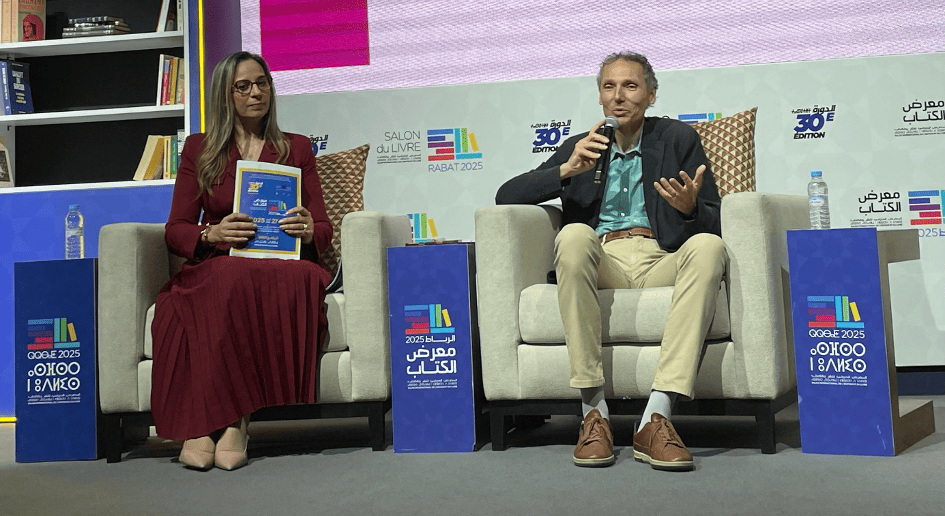
As part of the program at SIEL 2025, an inspiring conference titled “Reading in the Age of Screens” brought together passionate voices in literature to tackle a critical issue: How can we make young people love reading in a digital world?

As part of the program at SIEL 2025, an inspiring conference titled “Reading in the Age of Screens” brought together passionate voices in literature to tackle a critical issue: How can we make young people love reading in a digital world?

As part of the program at SIEL 2025, an inspiring conference titled “Reading in the Age of Screens” brought together passionate voices in literature to tackle a critical issue: How can we make young people love reading in a digital world?
Moderated by Rabia El Gharbaoui, a PhD in humanities specializing in literature, and featuring French author Laurent Gounelle (best known for The Man Who Wanted to Be Happy), the session began with some striking figures: Moroccans spend an average of 5 hours and 53 minutes per day in front of screens, according to the HCP, while reading takes up just two minutes a day.
In a society dominated by screens, Rabia El Gharbaoui raised a key question: what place does reading still hold? She shed light on the addictive design of social media platforms, driven by dopamine surges, and how they pose serious challenges to focus, language learning, and imagination.
Laurent Gounelle offered thoughtful insight into the value of reading, emphasizing how novels nurture imagination: “With one novel, you can make a hundred films,” he said, affirming that reading helps us become the creators of our own lives.
The discussion underscored the vital role early education plays in shaping a child’s cognitive and emotional development. Simple practices—like reading aloud to children or establishing healthy screen-time boundaries, such as limiting use to 20 minutes after dinner—can yield profound and lasting benefits. These moments not only strengthen bonds between parents and children but also nurture imagination, attention span, and emotional intelligence.
Gounelle’s emphasis on communicating the value of reading to teenagers was particularly compelling. In a world dominated by digital distractions, it’s crucial to help young people understand that reading offers more than just knowledge. It offers a sanctuary—a place of silence, introspection, and mental expansion where they can truly encounter themselves. It is in these quiet moments, away from the constant stimulation of screens, that critical thinking and self-awareness are cultivated.
In closing, the speakers left the audience with a powerful and resonant metaphor: “Screens are like money, a good servant, but a bad master.” This comparison encapsulated the essence of the conversation. Technology, when used with intention and balance, can enrich our lives. But when left unchecked, it can subtly take control, dulling our capacity for reflection and human connection. The discussion served as a thoughtful reminder that fostering a healthy relationship with screens—rooted in awareness, education, and mindful habits is one of the most important challenges and opportunities of our time.
